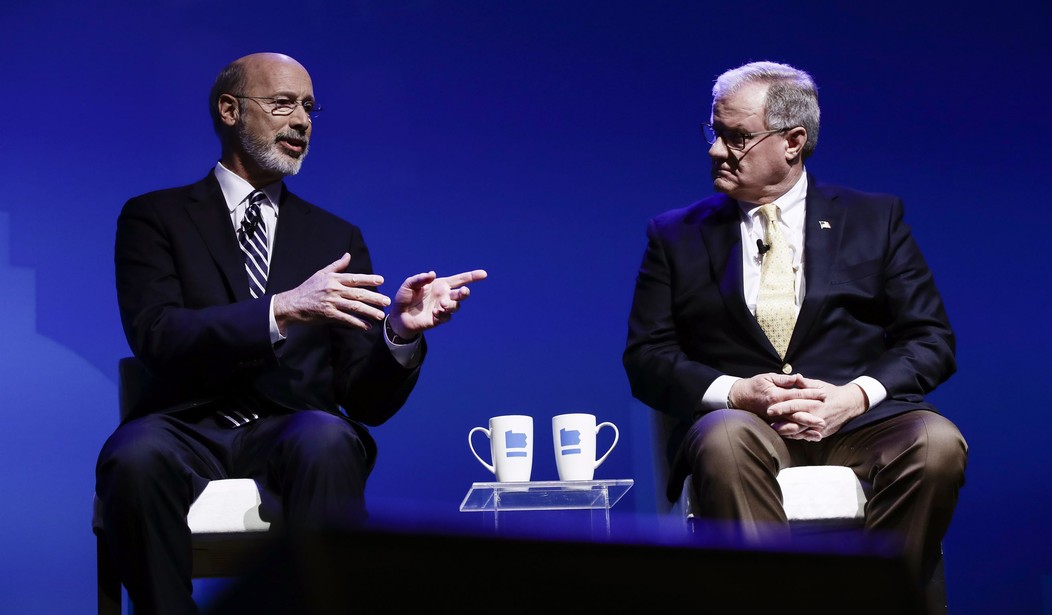A proposal in Gov. Tom Wolf’s fiscal 2020 budget to raise the minimum wage for Pennsylvania’s public school teachers and support staff by a whopping 140 percent would have expansive and expensive consequences for taxpayers, concludes an analysis by the Allegheny Institute for Public Policy.
It was in the 1980s that the state Legislature established a minimum wage for teachers, counselors, school nurses and other education professionals at $18,500 per year (or $8.90 an hour, assuming a 40-hour work week).
In a summary of the latest spending blueprint, the Office of the Budget called the 1980s move “arbitrary.” But now, the governor wants to arbitrarily raise that wage floor to $45,000 per year.
Should the pay raise proposal win General Assembly approval – and that would appear to be an unknown proposition – it would not only increase wages but mean increased pension payments and other benefits contractually tied to salary.
“And that increase could set off demands for higher pay by those already earning $45,000 or higher, based on the argument that education levels and experience should be appropriately recognized and rewarded,” say Frank Gamrat, executive director of the Pittsburgh think tank, and Jake Haulk, its president-emeritus and senior advisor.
“This, of course, means higher costs for school districts that will have to be borne by local and state taxpayers,” the Ph.D. economists note (in Policy Brief Vol. 19, No. 10). “And this burden will fall hardest on those poorer districts whose current average is below $45,000.”
Case in point, the Turkeyfoot Valley School District in Somerset County. At $37,444, it has the lowest average classroom teacher salary among the commonwealth public school districts. Nearly 32 percent of its total revenue comes from local tax sources while nearly 65 percent comes from the state.
Recommended
Some Turkeyfoot Valley teachers, of course, are earning less than the average. Say it’s $32,000. Under the Wolf proposal, they would receive a $13,000 raise while teachers being paid $43,000 would only see a $2,000 raise.
“In either case, where does the money come from?” the think tank scholars ask. “In total, the mandate will immediately force teacher-related expense up by 20 percent (not just salaries but other salary-related costs) and likely much higher as other salary adjustments must be made for those teachers with salaries already over $45,000.”
In light of Turkeyfoot Valley’s limited tax capacity, covering such a large expenditure increase will be close to impossible. Which means it will be up to state taxpayers to cover much or most of the salary mandate’s added costs in this district and many others.
“This, at a time when the need to pour money into pensions due to the enormous unfunded pension liability is hamstringing the ability of districts and the state to take on any additional expenses,” Gamrat and Haulk remind.
Furthermore, the think tank scholars say Wolf’s proposed mandate is the state’s attempt to narrow its embarrassing teacher pay gap while failing to address the underlying cause – the vast differences in local tax capacity per student across Pennsylvania districts – while appeasing labor unions.
Considering the commonwealth’s pension funding problems that will “require massive payments each year for a long time to come, the state will not be able to afford this teacher pay generosity without economically ill-advised tax hikes or spending cuts elsewhere,” the Allegheny Institute researchers say.
“Perhaps the state will be willing to cut its funding to rich school districts with their $20,000 and higher per student expenditure to cover the extra costs the mandate will create,” Gamrat and Haulk postulate.
“If no offsets can be found, this proposal will face a very difficult time in the Legislature.”
























Join the conversation as a VIP Member